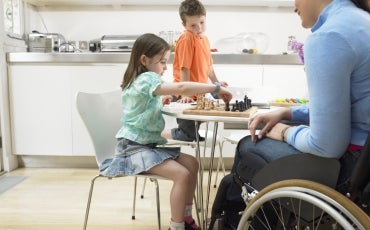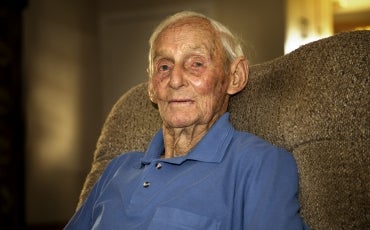Community update: COVID-19 (May 2020)
Commission News
May 2020
Commissioner update COVID-19
Dear friends,
As we come to grips with a new way of living (at least for now), we are reminded of how fortunate we are to be living in Australia.
Measures to control COVID-19 appear to have been relatively successful—particularly in comparison with other first world nations. But it has not been without significant sacrifices. The impact of the virus and ways to combat and limit its spread have greatly affected our communities, families and friends, workplaces—and us as individuals.
Since we last wrote to you, my colleagues and I at the Australian Human Rights Commission have been monitoring a range of policies that are designed to help us stay safe. It is especially important in this ever-changing pandemic landscape, that we navigate our way with clear human rights principles.
In this issue of our eNewsletter, Disability Discrimination Commissioner Dr Ben Gauntlett discusses his work on bringing a human rights perspective to the government’s health policy response, and Age Discrimination Commissioner the Hon Dr Kay Patterson AO shares her insights on ageism and the pandemic.
Other work related to the pandemic includes the Human Rights Commissioner, Edward Santow, leading the Commission’s response to the COVIDSafe App. While the Commission welcomes the App as an important public health measure, it is equally as important that the public has confidence that their rights are protected while using the App. This week, the Government released the COVIDsafe Bill to legislate safeguards to protect privacy and other human rights. The Commission is working to ensure the law governing the COVIDSafe App includes all necessary protections.
Aboriginal and Torres Strait Islander Social Justice Commissioner June Oscar AO has been working closely with Indigenous leaders and stakeholders to help ensure Indigenous communities receive culturally appropriate services and support necessary to deal with the pandemic.
Race Discrimination Commissioner Chin Tan continues to reinforce the need for unity, not racism, as we all try to combat COVID-19. Commissioner Tan has also been working with Government to foster greater social cohesion during the crisis. As a result of that cooperation, we have now published information about how to make a discrimination complaint to the Commission, in 64 languages.
What some of you may not know is that much of our work to protect and promote your human rights is done behind the scenes. That includes working closely with Government, civil society and business. This work continues and is as important as ever as we grapple with the ever-changing pandemic landscape.
In addition to our work relating to the pandemic, we continue to progress our work in other areas of the Commission. In the coming months, Sex Discrimination Commissioner Kate Jenkins will be hosting a series of webinars to share the results of the Commission’s world-first National Inquiry into Sexual Harassment in Australian Workplaces, Respect@Work. The webinars will also be an opportunity to discuss ways to manage the risk of sexual harassment in the online workplace in the context of the pandemic. More information about the webinar series can be found here.
Later this month, Human Rights Commissioner Edward Santow will release Implementing OPCAT in Australia, which is the final step in our consultation process on how Australia should implement the Optional Protocol to the Convention Against Torture and Other Cruel, Inhuman or Degrading Treatment or Punishment (OPCAT). In the course of the consultation the Commission has worked extensively with civil society, inspectorate and monitoring bodies, government and independent agencies.
Finally, we understand many of you are enquiring about our 2020 Human Rights Award nominations. We will update you on the nominations process and this year’s Awards Ceremony in June. In the meantime, you can stay updated with our work as Australia’s peak human rights body, via our website, Twitter, Facebook and Instagram
Stay safe. Stay connected. Stay informed.
Warm regards,
Rosalind
Bringing a disability lens to the health policy response
- Disability Discrimination Commissioner, Dr Ben Gauntlett
It was important for Australian governments to move quickly to introduce social distancing and self-isolation measures to reduce community transmission of COVID-19. This has played an important role in Australia’s successful efforts to ‘flatten the curve.’ However, while we have all felt the effects of our new way of living the impact has been profound for many of the 4.4 million Australians with disability.
From the earliest recognition of the dangers posed by the pandemic, express policy changes were made to benefit many different groups of Australians but the term “disability” was rarely used by decision-makers when referring to different people within Australia. The scale and enormity of the pandemic, together with the urgency of the required response, meant this may have been an oversight. But it highlights the need for community awareness of the specific and varied needs of people with disability to be continuously assessed, especially in distressing times.
To read the full article click here >>
Ageism and COVID-19
- Age Discrimination Commissioner, The Hon Dr Kay Patterson AO
There’s no denying that age is relevant in determining the risks that COVID-19 presents. However, as Age Discrimination Commissioner, I’m alert for any ageist stereotyping as we cope with this public health emergency.
Day after day, difficult decisions are being made. Recommendations are changing. Lives are affected. My job is to ensure human rights are respected as the situation continues to change.
To tackle the virus, we need solidarity, cooperation and respect for human rights to mitigate against the risk of age discrimination as an unintended consequence of our response, as our society grapples with, and then recovers from, the pandemic. It is important that no section of our community is left behind on the road to recovery from this global crisis.
To read the full article click here >>
Commission FAQs on COVID-19
The Commission is working to help safeguard the human rights of all people and to keep them informed. We understand many people in the community have questions about the human rights impacts of COVID-19 and the measures governments are taking to protect the public.
Many of these questions are answered on the Commission's COVID-19 webpage. Click here for up-to-date Coronavirus information, frequently asked questions and Commission news.



